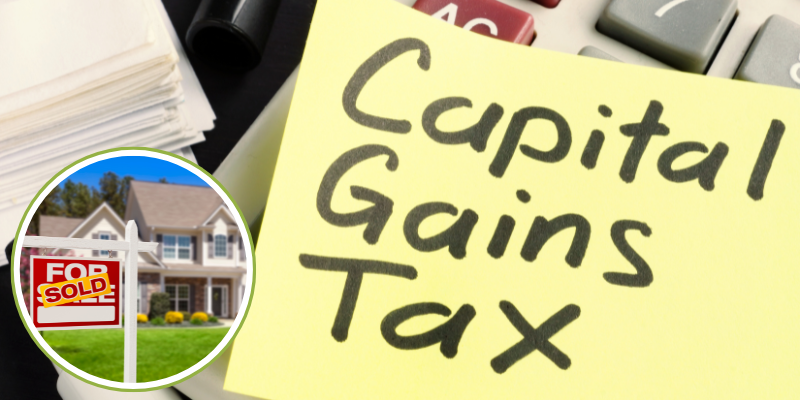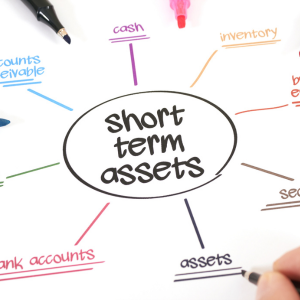
Capital Gains Tax After Selling a House: Understanding Capital Gains Tax on Home Sales and Real Estate Profits
Capital gains tax after selling a house applies to the profit made from the sale, especially if the property is not your primary residence. Understanding the tax basis, exemptions, and reporting rules can help you plan and manage your real estate investment effectively.
Understanding Short-Term vs. Long-Term Capital Gains on Home Sales
When you sell a home, it is important to understand capital gains tax to manage your tax liability properly. The Internal Revenue Service (IRS) divides capital gains from property sales into two groups: short-term and long-term. These two types have different tax rates based on how long you held the property before selling it. This affects how much tax you pay on the profit from the sale.
Capital gains tax after selling a house means the tax on the difference between the sale price and the original purchase price, adjusted for improvements and costs. Whether this gain is short-term or long-term depends on the length of ownership. This distinction changes the capital gains tax upon selling a house and can affect homeowners and investors differently.
The tax implications of selling a house vary if the property was your main residence or an investment. For example, real estate capital gains tax rules are different for someone selling their primary residence compared to someone selling rental property or other real estate assets.
What is the impact of a property’s holding period on tax rates?

The time you own a property, called the holding period, affects the capital gains rate on your profit. Here’s how:
- If you sell a property you owned for one year or less, your gain is a short-term capital gain. It is taxed at your regular income tax bracket rates, which can be higher than capital gains rates. Short-term gains are added to your regular income and taxed accordingly.
- If you sell a property you owned for more than one year, your gain is a long-term capital gain. These gains get lower tax rates, usually between 0% and 20%, depending on your income. Long-term capital gains tax rates are generally lower than ordinary income tax rates.
Because of this, many taxpayers try to hold their property for longer than one year to lower their overall tax liability. The IRS checks the exact dates of purchase and sale to decide the holding period, so keeping good records is important.
Also, your specific tax bracket and state tax laws can affect how much tax you pay on capital gains from a property sale.
How does the Internal Revenue Service define short-term versus long-term gains for residential property?
The IRS defines short-term and long-term capital gains based on how long you own the property:
- Short-Term Gains: These happen when you sell a property you owned for one year or less. They are taxed as ordinary income, with rates up to 37% under current federal law.
- Long-Term Gains: These occur when you sell a property after owning it for more than one year. These gains are taxed at lower rates—typically 0%, 15%, or 20%—depending on your income.
If the property is your principal residence, you may qualify for exclusions that reduce taxable gains. The IRS allows homeowners who meet certain ownership and use tests to exclude up to $250,000 of capital gains ($500,000 for married couples filing jointly) from federal taxes. This exclusion does not apply to properties used only as investments.
When reporting capital gains on IRS Schedule D, it is important to correctly label your gains as short-term or long-term. Mistakes can cause wrong tax calculations and possible penalties.
Key point: The IRS determines the short-term or long-term gain status solely based on whether the property was held for longer than one year. Keeping clear records of purchase and sale dates helps ensure the correct tax treatment.
Adjusting Your Cost Basis to Reduce Tax Liability
Understanding how to adjust your cost basis can greatly affect your tax liability when selling a property. Your cost basis is the original purchase price of your home or rental property, adjusted for things like expenses, home improvements, and depreciation. Calculating your adjusted cost basis correctly helps lower your capital gains taxes and ensures your tax filing with the IRS is accurate.
You can increase your cost basis by including qualified expenses such as major home improvements that raise the property’s value or extend its life. These are different from regular repairs, which usually do not affect the cost basis. On the other hand, if you took depreciation deductions on a rental property, these reduce your cost basis and may cause depreciation recapture when you sell, which can raise your total tax bill.
When you understand these rules, it’s easier to cut down on taxable gains the right way by using tax breaks, exemptions, and today’s tax laws. And if you’d rather skip the stress of selling, we buy houses cash in Washington to make things simple for you.
What expenses and improvements can increase your home’s cost basis?
Not all costs related to your home can increase your cost basis. The IRS lists which expenses and home improvements qualify to be added to your basis to help lower your taxable gains at sale.
Qualifying costs include:
- Home improvements that add significant value, extend the life of the property, or adapt it for new uses (for example, adding a new room, replacing the roof, or upgrading plumbing).
- Some expenses, like fees for local improvements or installing energy-saving systems, can count.
- Costs directly related to purchasing the home, like title insurance fees and recording fees, may be included, but regular mortgage debt payments and interest are not.
These costs are not immediate tax deductions but increase your tax basis, which reduces your future capital gains tax when you sell your residence or investment property.
Routine repairs, such as painting or fixing leaks, do not increase your cost basis.
Do all home renovation projects affect capital gains tax calculations?
Not all home renovations change your capital gains tax because only certain projects change your cost basis. The IRS separates repairs, which maintain your home, from improvements, which add value or life to it.
For tax purposes:
- Improvements that increase your home’s value, renew it, or extend its life should be added to your cost basis. Examples include building a deck or finishing a basement.
- Basic repairs, like fixing gutters or replacing a broken tile, do not affect your cost basis and cannot be deducted from capital gains.
- Some renovations may qualify for specific tax deductions or credits, especially those that improve energy efficiency under current tax law.
For investor home buyers in Tacoma, misclassifying expenses can cause tax reporting errors and increase your liability. Keeping detailed records and working closely with professionals who specialize in real estate investment taxes is key to protecting your bottom line.
How does depreciation recapture apply to the sale of a former rental property?
When you sell a rental property, special rules about depreciation recapture affect your tax liability. During ownership, landlords take depreciation deductions to account for property wear and tear.

At sale:
- The IRS requires you to “recapture” any depreciation claimed by taxing it differently from regular capital gains.
- Depreciation recapture is taxed as ordinary income up to a maximum rate of 25%, which can increase your total tax on the sale.
- Any gain beyond the recaptured depreciation is taxed as standard capital gains tax, depending on how long you owned the property and your tax bracket.
Knowing about depreciation recapture helps investors plan sales and avoid unexpected taxes. You calculate it by reducing your original cost basis by the total depreciation taken before figuring the taxable gain.
Key points:
- Depreciation lowers your cost basis during ownership but adds to your tax liability when you sell because of recapture.
- Not accounting for depreciation properly can cause IRS penalties or audits.
- It is a good idea to work with a tax expert who knows real estate finances to follow the rules and minimize taxes.
Serious Cash Offer buys houses for cash in any situation and condition — if you’re exploring your options or need guidance, reach out today for help tailored to your situation.
Capital Gains Tax in Special Home Sale Scenarios
Understanding capital gains tax in special home sale situations is important for homeowners, investors, and heirs. Whether you sell a principal residence, a secondary home, or an inherited property, the rules for tax liability and exemptions differ under current tax law. This section explains key points about property sale capital gains tax, including how to report sales and how the tax implications of selling a house change depending on ownership or circumstances.
Capital gains tax applies to the profit made when selling real estate. Your tax liability depends on the property’s cost basis, the sale price, and any exemptions you qualify for. For many homeowners, the home sale capital gains tax can be reduced or avoided with exclusions if the property qualifies as a principal residence. But in cases like divorce, inheritance, or selling a second home, different rules apply.
To calculate capital gains, subtract the adjusted tax basis (which is the purchase price plus improvements minus any depreciation) from your sale proceeds. This amount is the profit that may be taxed. You must complete proper filing and reporting of these sales to follow IRS rules on property tax on sales.
What are the tax implications of selling a second home or vacation property?
Selling a second home or vacation property follows different rules for capital gains tax property sale compared to selling a principal residence. These homes are often viewed as investment properties, which changes the exemptions and taxes.
Important points are:
- The home sale exclusion does not apply to second homes, so any profit from the sale is fully taxable.
- You must figure gains based on the property’s adjusted tax basis and sale price.
- If you rented the property, depreciation recapture applies, meaning you pay taxes on previously claimed depreciation as ordinary income.
- The sale adds to your taxable income, increasing your overall tax liability.
- Correct filing and reporting are required to comply with IRS rules on real estate capital gains tax.
You may consider strategies like 1031 exchanges to defer taxes on second homes, but these must follow current tax law and reporting requirements.
Key Points
- Special home sale situations affect your capital gains tax duties.
- Property transfers in divorce usually delay capital gains, but need proper reporting.
- Inherited properties benefit from a step-up in basis, often lowering taxes.
- Second homes don’t qualify for home sale exclusions, so gains are taxed with possible depreciation recapture.
- Careful filing and understanding of the tax implications help avoid penalties.
For more help with capital gains tax, talk to a tax expert or check IRS guides on real estate sales.
Essential Record-Keeping and Planning for Future Property Sales
Keeping accurate records and planning ahead are very important when selling a property. The Internal Revenue Service (IRS) requires clear documents to figure out your tax basis, calculate deductible expenses, and determine your tax liability. Keeping organized receipts, settlement statements, and closing disclosures helps you follow rules during tax filing and protects you from audits or penalties.
Working with wealth management experts and financial advisors can help you manage your real estate finances and improve your tax planning for future sales. Knowing about the capital gains tax after selling a house and other home sale tax implications lets you use tax benefits and avoid surprises. Always keep detailed records of every step, such as the transfer deed and title documents, to stay in compliance and make better financial choices.
What documents are critical for accurately tracking your home’s tax basis and expenses?
Having the right paperwork is key to tracking your home’s tax basis and all related expenses that can reduce your taxes. Keep these documents safe:
- Records of the purchase price, like closing disclosures and settlement statements from the home’s purchase.
- Receipts and contracts for any home improvements that add value.
- Documents showing depreciation if the home was rented out.
- Statements related to mortgage debt payments.
- Copies of past tax records and filings about the property.
- Proof of extra costs like transfer taxes, title fees, and settlement charges.
- Sales records showing the final sale price and closing details.
These papers help establish your true cost basis and reduce the capital gains tax on property sales by applying all allowed deductions. Missing or incomplete documents can increase your tax liability and raise the chance of an IRS audit.
How can wealth management or financial advisors assist with capital gains tax planning?

Meeting with wealth management professionals and financial advisors can help you handle tax planning for selling real estate. They offer advice on tax-saving methods such as:
- Taking advantage of exemptions and tax breaks for primary homes.
- Using options like installment sales or 1031 exchanges to delay or lower the capital gains tax after selling.
- Understanding how the sale affects your tax bracket and managing withholding properly.
- Using deductions and credits to reduce taxable income.
- Helping with portfolio management that includes property to improve overall returns and tax results.
- Making sure you meet IRS rules and deadlines to avoid penalties.
These experts combine knowledge of taxes and investments to create plans that fit your situation, helping you protect your wealth and meet your financial goals.
What steps should property sellers take to prepare for tax filing after a sale?
To get ready for tax filing after selling property, follow these steps carefully to meet IRS rules:
- Collect all necessary documents, such as purchase and sale agreements, closing statements, and home improvement proofs.
- Fill out and file Form 1040 with Schedule D, which reports capital gains and losses.
- Correctly report the sale price and calculate your cost basis to find the right capital gains tax home sale amount.
- Claim any related itemized deductions.
- Confirm that any withholding and estimated tax payments are paid on time.
- Check your tax return to avoid mistakes that could lead to an IRS audit.
- File your return by the IRS deadline to prevent late penalties.
- Keep your records for several years in case the IRS reviews your return.
Good preparation and clear record-keeping help you file smoothly and get all possible tax benefits while lowering risks.
Key Takeaways:
- Keep all important documents like purchase price records, home improvement receipts, and closing disclosures to set a clear tax basis.
- Work with wealth management and financial advisors to use smart tax planning strategies that lower your capital gains tax.
- Follow proper steps when tax filing to comply with IRS rules, avoid penalties, and get the best tax results after selling property.
Advanced Strategies for Deferring or Minimizing Capital Gains Tax
When managing capital gains tax after selling a house or other real estate, knowing advanced strategies can help reduce your tax liability. Some common methods include the 1031 exchange, installment sales, and investing in opportunity zones. These approaches can delay taxes owed on profits from a capital gains tax property sale and improve long-term wealth management.
Using effective tax strategies after selling a house requires good tax planning and understanding IRS rules about capital gains taxation. Whether using a like-kind exchange or an installment sale, each option has different benefits and requirements. Real estate investors who want to grow their portfolio while lowering taxes should consider these methods as part of their financial plan.
Can a 1031 exchange be used for a former primary residence converted to an investment?
A 1031 exchange, or like-kind exchange, is a way to defer capital gains taxes by reinvesting the proceeds from one property sale into another similar property.
If you have a former primary residence that you converted into an investment property, you might use a 1031 exchange, but there are specific rules under tax law and the IRS. To qualify:
- The home must be an investment property when sold.
- The properties involved must meet IRS rules for like-kind exchanges.
- You cannot use the primary residence exclusion for the time the home was your main residence, but you can delay taxes on gains during the rental period.
This method helps real estate investors lower or postpone capital gains tax upon selling a house and keep growing their investments without paying taxes right away. Because rules about switching a home from personal to investment use are complex, getting advice from a tax expert is recommended.
Note: Changing a primary residence to an investment property and then using a 1031 exchange needs proper documents and timing to meet IRS rules.
When might an installment sale be a beneficial strategy for managing capital gains liability?
An installment sale lets sellers receive payments over several years instead of all at once. This approach can help manage capital gains tax after selling real estate by spreading out the taxable gain.
Benefits of installment sales for real estate finances include:
- Reporting gains over multiple years, reducing tax in any single year.
- Possibly lowering your tax rates by avoiding a large one-time gain.
- Earning steady income through seller financing.
- Allowing buyers to pay in smaller amounts with a flexible payment plan.
For example, if you sell a property for $500,000 with $100,000 in gains, you could set up an installment sale to get payments over five years. Then, you report $20,000 gain each year instead of reporting all at once.
Tax tip: The IRS treats interest on installment sales separately from capital gains. Working with a tax professional ensures you report correctly and get the most benefit.
What are opportunity zones, and how are they relevant to real estate profits after a sale?
Opportunity zones are specific areas identified by the government where investors can get special tax incentives by putting capital gains into development projects. This encourages investment in low-income communities and offers tax advantages on real estate profits.
Putting capital gains into qualified opportunity zones allows investors to:
- Defer taxes on earlier gains until they sell the opportunity zone investment or by December 31, 2026.
- Reduce the amount of capital gains tax if the investment is held for certain time periods.
- Avoid paying taxes on gains from the opportunity zone investment if held for at least 10 years.
For those dealing with capital gains tax on real estate sales, opportunity zones offer a way to delay taxes and manage wealth. Reinvesting proceeds from a capital gains tax property sale into an opportunity zone fund lets investors defer taxes and support community growth.
Key point: Opportunity zones are useful for investors who want to lower capital gains implications after selling a house while helping improve neighborhoods.
What taxes apply to the profit earned from selling a home?
When you sell a house, capital gains tax usually applies to the profit made from the sale. This profit is the difference between what you bought the property for and the sale price, including any improvements. Some areas may also have specific taxes, like house sale profits tax or property tax, after selling a house. It is important to understand your gross revenue from the sale and know your fiscal obligations under local laws.
Are there any tax exemptions or reliefs for homeowners selling their primary residence?
Yes, many tax rules provide a tax-free allowance or relief for owner-occupied homes. If the property was your main home during the ownership period, part or all of the gain might be exempt from taxes. Capital gains from primary residences are often taxed on an exemption thresholds that reduce the taxable amount, depending on specific assessment rules.
How does homeownership status affect capital gains taxation?
The way a property is classified affects how it is taxed. Owner-occupied homes or those used for personal homeownership may get tax relief or deferrals. In contrast, investment or rental properties often face higher tax-deferred obligations, which can reduce the net proceeds from the sale.
Can selling profits from different types of property structures, like condos or apartments, have variable tax implications?
Yes, tax rules can differ based on the type of property structure, such as land units, apartments, condos, or commercial premises. Each type may have unique regulations about disposal, acquisition costs, and available allowances. Consulting an accountant can help clarify the legislation based on your property type.
What role do mortgage balances or outstanding loans play in calculating taxable gains?
Outstanding mortgage balances do not lower the capital gains tax because the tax is based on the difference between the sale price and acquisition cost plus allowable expenses. However, any loan repayments must be paid from the sale proceeds, which affects the net cash you receive.
Is it possible to defer capital gains taxes when relocating or acquiring a new home?
In some places, you can roll over or defer capital gains tax if you use the sale proceeds to buy another qualifying property within a set time. This helps homeowners who are moving or buying a new home reduce their immediate tax obligations.
How do trusts or gifts involving property impact capital gains tax?
Giving a property as a gift or putting it into a trust can trigger a tax event. This usually counts as a disposal and may cause capital gains tax based on the property’s current market appreciation. Proper planning can help follow tax laws and take advantage of any available reliefs.
What documentation should be maintained for accurate tax reporting after selling a house?
- Purchase and sale agreements
- Receipts for home improvements
- Mortgage statements
- Tax declarations
These documents support correct calculations of gross and net gains, help meet tax reporting obligations, and assist in case of refunds or audits by tax officials.
Key Insights
- Knowing how capital gain tax works after selling a dwelling helps you manage your money and avoid unexpected costs on the increase in your house value.
- The tax on property sales depends on how long you owned the home and if you qualify for any tax exemption, like the primary residence exclusion, which allows single filers up to $250,000 and married couples filing jointly up to $500,000.
- To figure out your equity, subtract what you still owe on your mortgage from the current market value. This number affects how much capital gain tax you will owe when selling.
- We offer clear guidance to help you understand the difference between capital gains tax and the less common house appreciation tax, so you know all possible taxes linked to property sales.
- Customers should know that home improvements can raise the adjusted cost basis of the property. This can lower your taxable gains and reduce the tax on property transactions.
- Keeping good records and reporting on time is important to follow IRS rules and get the most out of available tax exemptions, protecting your finances.
- If you sell a home used as your main residence, specific rules limit how much gain you must pay tax on. This is key for customers wanting to keep more of their money.
- It is important to talk with tax experts when dealing with multiple homes or investment properties, because capital gain tax rules can be different for these cases.
- Knowing about state-specific differences in capital gain tax rates and extra fees on property sales helps you plan properly and avoid surprise taxes.
- Using exclusions wisely and understanding how your equity grows can help you keep more money after taxes when you sell your property, giving better financial results for customers.
Helpful Tacoma Blog Articles
- Selling Your Tacoma Home Below Market Value
- Taxes I Have to Pay When Selling A House In Tacoma, WA
- Selling Your Mold-affected Home In Tacoma’s Real Estate Market
- Selling Your Homes With Liens In Tacoma, WA
- Paperwork For Selling A House By Owner in Tacoma, WA
- How To Sell A House With Code Violation in Tacoma, WA
- Closing Costs Without A Real Estate Agent In Tacoma, WA
- Delinquent Hoa Dues in Tacoma, WA
- Can Medical Bills Take Your House in Tacoma, WA
- Inherited House With Sibling in Tacoma, WA
- Checklist For Selling A House in Tacoma, WA
- What Does It Cost To Rewire A House in Tacoma, WA
- Capital Gains Tax After Selling a House Guide in Tacoma, WA
- Selling Shares of Your Home in Tacoma, WA
- Should I Stage My House to Sell in Tacoma, WA?

